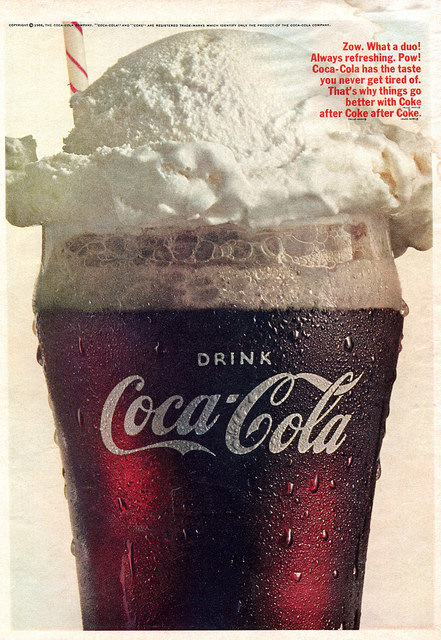Coca-Cola is a global brand, selling 500 drinks brands in over 200 countries. Forbes recently listed it as being the fourth most valuable brand, only eclipsed by technology giants Apple, Microsoft and Google.
But how did Coca-Cola become the global success of today? here we take a look at its evolution, from medicinal tonic to cure tiredness and headaches to massive global brand, recognised and enjoyed throughout the world. We also take a look at the company today and how a recent decline in profits could have an impact on how all of us enjoy carbonated drinks.
Origins of Coca-Cola
Coke originated in 1886 selling for five cents a glass. Invented by American pharmacist John Pemberton, coke started out as a medicinal tonic made from a mixture of ingredients mixed with carbonated water. The drink was sold by Jacobs’ Pharmacy in Atlanta and only nine glasses of it were sold in the first year.
In 1888 Pemberton sold the company to a businessman who began to promote the drink. The brand started to evolve and the bottling process began in 1895. A decade later the bottles were starting to look similar to the iconic bottles that remain in use today.
Around 1917, Coco-Cola was exported to Puerto Rico, Cuba, France and several other countries. The logo started appearing at large events, including the Olympics in Amsterdam and bullfighting games in Spain. Coca-cola as a brand was slowly evolving and becoming part of every day life
Many Europeans had their first taste of the drink during the Second World War. It was promoted within the Army and became a huge success. At this time it was hard to find the ingredients to make Coca-Cola so another popular soda, Fanta, was launched.
Declining Profits
Now a fully-fledged brand, the Coca-Cola Company began to promote the drink as part of the American Lifestyle. New drinks such as Sprite were introduced, followed by Diet Coke and Cherry Coke. Between 1954 and 2000, Coke’s profits soared.
However, by 2004 things started to change. For the last decade, carbonated drinks profits have declined. This continued in 2014 when Coca-Cola’s profits fell sharply.
But coke isn’t about to release its grip on the nation’s drinking habits. With customers seeking lower sugar alternatives, the company recently announced it was to launch its own brand of milk.
UK Soft Drinks Market
In the UK the soft drinks market is buoyant. While there are concerns over sugar consumption, choice is an important factor and there will be a growing emphasis on low and no-sugar options such as those found at empireuk.
Interest in healthier drinks has also seen an increase in the sales of bottled water, fruit juices and cold ‘hot’ drinks such as iced tea and coffee. Soft drink syrups are also popular and are a cost effective way to produce carbonated drinks.
Despite fluctuations in profit, coca-cola keeps a firm lead in the global soft drink market. The company recently announced it expects to restore sales momentum and part of their strategy will be to offer lower calorie and healthy alternatives to traditional soda.

